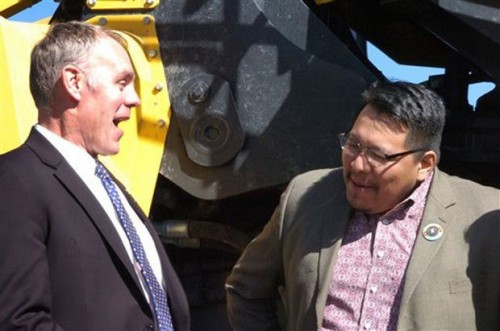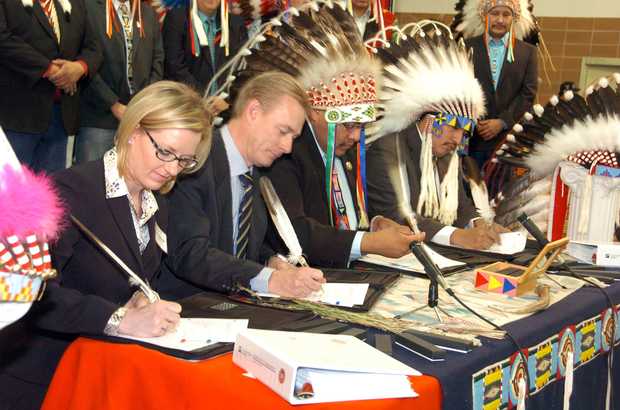
Photo/ AP
By Tom Lutey, The Montana Standard
U.S. Rep. Ryan Zinke, R-Mont., is attempting to block federal government plans to increase royalties that companies pay for coal, oil and gas taken from public lands.
Zinke, citing concerns about the coal economy and prosperity on Montana’s Crow Indian Reservation, proposed blocking funding to the U.S. Department of Interior, the agency charged with making sure the public receives a fair price for its coal.
Interior has been working on a possible increase in royalties collected. Zinke’s proposal, introduced Tuesday night as an amendment to the Department of Interior budget, would prohibit DOI from continuing to spend money on its royalty work. His concern with DOI’s proposal is that it will discourage future coal mining.
“In my home state of Montana, the Crow Nation suffers from unemployment rates as high as 50 percent — despite having over a billion dollars in coal reserves,” Zinke said on the House floor. “Similar situations play out in communities across America. This administration has waged a war against coal. In the words of Crow Chairman Old Coyote, ‘A war on coal is a war on the Crow people.’”
Battle lines over coal royalties in Montana were drawn months ago when the Department of Interior first suggested that Americans weren’t getting a fair price for coal mined from public land.
The federal royalty rate on coal from open pit mines on public land is 12.5 percent. States where mines are located receive half of what’s collected. Concerned that the public wasn’t getting its full share from those sales, DOI’s Office of Natural Resources Revenue began scrutinizing payments in 2007. It concluded that coal royalty rules, which hadn’t been updated since 1989, were due for revision in part to “provide early certainty to industry and ONRR that companies have paid every dollar due.”
Groups like Bozeman-based Headwaters Economics say the public has been shorted $850 million under the current royalty scheme.
Those who believe coal companies aren’t paying a fair price for public coal say companies have created subsidiaries to sell coal to at low prices in order to keep royalty payments down. Rep. Betty McCollum, D-Minn., made that point Tuesday night, urging House lawmakers to reject Zinke’s amendment. McCollum said royalties need to be based not on sales to subsidiaries but rather independent buyers who pay considerably more for coal. This is particularly a concern when coal is sold for export, McCollum said.
“It’s now been three years since it was first reported that coal companies were skirting federal royalty payments by selling coal to sister companies,” McCollum said. “These low royalty evaluations especially hurt Native Americans who depend on these royalties for their income.”
Currently, royalties are assessed when the coal is sold at the mine. That method works when coal companies are in fact selling to other companies, but sometimes the buyer at the mine gate is a subsidiary of the mining company. The coal company is essentially selling coal to itself, and its subsidiary ultimately resells the coal for a higher price.
Asian buyers from Japan and South Korea don’t purchase coal at the mine gate but rather at Pacific Northwest seaports. The DOI would like to see royalties determined at the port sale.
Coal companies counter that coal prices are higher at port because of the costs associated with delivering the coal from the Powder River Basin in Wyoming and Montana. A royalty based on that sales price would be a tax on the coal subsidiary’s transportation costs, as well.
Interior officials would like to set the royalty amount by default if one can’t easily be determined. That proposal worries coal companies — and Zinke. Both say the default amounts will be too arbitrary and costly.
Both Republican and Democratic officials from Wyoming and Montana have expressed concern about changing the current royalty scheme. Montana Gov. Steve Bullock, a Democrat, wrote Interior months ago about the risk of creating too much uncertainty by changing the royalty scheme.



